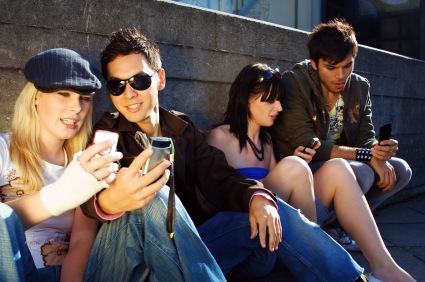 As individuals become more and more accustomed to sharing personal information with others on social networking sites like FourSquare, it’s easy to see how this free and easy exchange of information can be abused. For the businesses looking into using Foursquare as a promotional tool they might want to discuss their civil liability with their attorney before signing on.
As individuals become more and more accustomed to sharing personal information with others on social networking sites like FourSquare, it’s easy to see how this free and easy exchange of information can be abused. For the businesses looking into using Foursquare as a promotional tool they might want to discuss their civil liability with their attorney before signing on.
FourSquare, though entertaining and potentially useful for tips on the places around you and figuring out where your online friends are, does raise some security issues.
Everyone out in the social spaces has been guilty of accepting friend requests from strangers without thinking about the implications of who they are letting into their online social circle. As they check into places using FourSquare, a pattern of who they are, their tastes and most importantly, their day to day movements from one place to the next, draws a map for anyone who takes the time to look.
Reports are now coming in that the criminal minded are taking that time to figure out who the chatty people online are, and where they are going. More and more of the criminal element is taking notice of the Foursquare post of someone’s exact information that is freely posted on the internet. Stalkers, robberies and attackers are seemingly starting to take advantage of this information and investigation into incidents seem to be related to a person’s patterns of posting of their locations.
Any one can check out the Twitter stream and then find someone on Facebook or Google to get their photo. This makes it easy for someone looking for a quick ‘Mark’ find them from Foursquare posts.
Leo Hickman, a journalist with Guardian.co.uk, put this to the test in his piece, “How I became a FourSquare cyberstaker.”
Of course, there are settings within these applications that allow users to be more guarded about what gets pushed out to the internet. The problem is these games, by their very nature, reward people for sharing their experiences and the frequency of their check-ins. This motivation sometimes overrides a person’s common sense into thinking..if millions are doing this what harm is there for me to join in?
Local retailers are jumping in with rewarding users for repeating this behavior. The more someone checks into a place, the more likely they are to receive free food or gifts. In many cases, frequenting an establishment brings with a real-life reward; become the Mayor of Domino’s and get a free pizza once a week. That temptation is hard to turn down.
There is some question on what liability a business would have if someone who frequents their establishment only for their Foursquare promotion then gets accosted in the establishment or in their parking lot. Does the business’ offering of rewards produce an opportunity for the criminal element to lie in wait? Does the promotion of the business’ offer generate some liability for the safety of those who agree to check in?
Yes, of course, it is an option for someone to check-in for the reward, or not, so some liability of something going wrong would be shared by that person who choices to let the world know they are there. I am not an attorney nor a judge, but this would seem to not be the business’ fault if some misfortune incident occurs.
However, does the business want the negative word of mouth marketing that would be associated someone being robbed, or worse, after checking into their establishment? Does FourSquare want the reputation as a Stalkers Tool? This is something for businesses who choice to use Foursquare to discuss with their attorneys before signing on for their campaigns.
Now, there’s nothing wrong with rewarding loyal customers, I’m all for it. However, more needs to be done to make people aware of the potential pit-falls of putting one’s life out there. I also acknowledge common sense plays a huge part in all of this, but to individuals that are new to social networking, it may not be so obvious.
Read the Fine Print
Foursquare’s privacy policy can be found here but when you sign up, the default settings leaves you open to everyone, and the sign up process does not encourage you to change your privacy settings or offer best-practice security tips.
Only by taking the time and effort to search through your settings can you make changes to protect yourself.
Another thing to bear in mind is that like so many other social games, there is a competitive aspect which encourages people to acquire as many badges as possible. This also pushes people to make even more posts of where they are located.
There have been instances where people have “checked-in” to their own homes, making them a potential target for burglary or other criminal behavior.
The point here is not that these applications are evil, but that in an ideal world, more should be done by their creators to encourage security and privacy.
The fact is, although social media and social gaming are not particularly new, technology is evolving at a crazy rate and we’re struggling to catch up. For the most part, I agree social gaming and social networking can be great fun and connect you with new people and places in a way that wasn’t possible not too long ago. Unfortunately, the danger is in getting excited about the information being shared. We may forget to consider the implications of what we’re telling the world about ourselves.
So before you decide to use FourSquare, Facebook, Twitter, Google and all of the other social media outlets available as the broadcast mechanisms for your social experience, take a step back and think about what the audience may be up to.
Let me know how I can help.
 Contact Scot Duke for a Complementary 30 minute Evaluation Session. When it comes time to check your business’ direction it’s time to talk to someone experienced in business operations. Contact Scot Duke for a Complementary 30 minute Evaluation Session. When it comes time to check your business’ direction it’s time to talk to someone experienced in business operations. |











